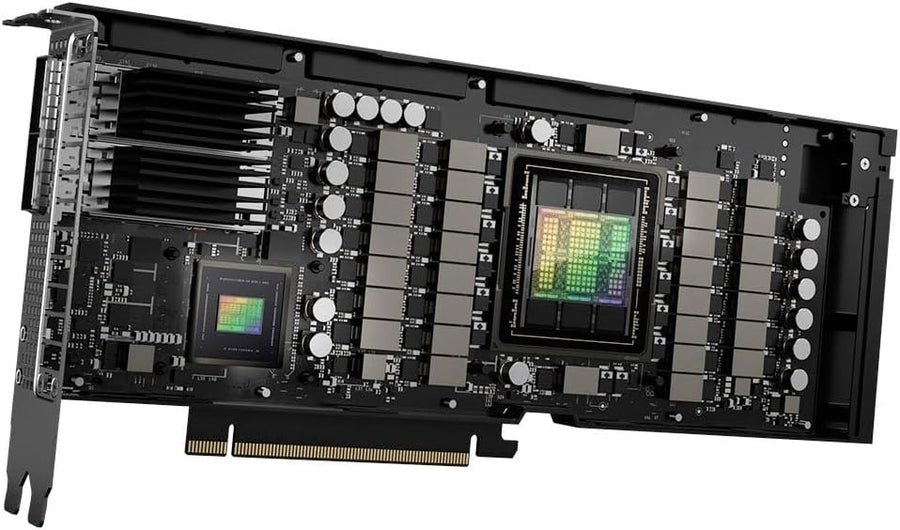China Intensifies Scrutiny on Nvidia AI Chip Imports
China intensifies customs enforcement on Nvidia AI chips, reflecting efforts to reduce reliance on U.S. technology amid rising geopolitical tensions.

China Intensifies Scrutiny on Nvidia AI Chip Imports
China has intensified its customs enforcement efforts targeting imports of Nvidia’s advanced artificial intelligence (AI) chips, a move reflecting Beijing's drive to reduce domestic reliance on U.S. semiconductor technology amid escalating geopolitical and trade tensions. This crackdown specifically targets Nvidia’s high-performance AI processors, which are central to cutting-edge computing applications from data centers to autonomous vehicles.
Background: Nvidia’s AI Chips and U.S. Export Controls
Nvidia, a Silicon Valley-based technology giant, develops some of the world's most powerful AI chips, including the A100 and H100 GPUs, widely used for machine learning, deep learning, and data-intensive AI tasks. These chips are pivotal for China's burgeoning AI industry but have been subject to U.S. export restrictions since 2022, aimed at curbing China’s access to advanced semiconductor technology with potential military applications.
The U.S. government has imposed strict controls preventing American companies like Nvidia from selling certain AI chips to Chinese firms without explicit licenses, citing national security concerns. Despite these restrictions, reports have emerged about complex supply chain workarounds and potential unauthorized imports of Nvidia chips into China, prompting the recent customs crackdown.
Details of the Crackdown
According to reports from the Financial Times and corroborated by multiple sources, Chinese customs authorities have stepped up inspections and enforcement measures on shipments containing Nvidia AI chips. The crackdown involves:
- Increased scrutiny at customs checkpoints for shipments suspected of containing restricted Nvidia GPUs.
- Investigation of companies and intermediaries allegedly involved in circumventing export controls by re-labeling or smuggling banned chips.
- Clamping down on a mysterious corporate entity reportedly coordinating large-scale purchases and sales of Nvidia chips within China, raising concerns about illegal trade channels.
This enforcement aligns with Beijing’s broader strategy to promote domestic semiconductor development and reduce dependence on U.S. technology imports, particularly in sensitive sectors like AI and advanced computing.
Market and Industry Implications
The crackdown has immediate repercussions for both Nvidia and the global semiconductor supply chain:
- Nvidia’s stock has shown resilience, buoyed partly by reports of export approvals to other markets like the UAE and Wall Street raising price targets, indicating investor confidence in Nvidia’s AI chip demand despite regulatory hurdles.
- Chinese tech companies face supply uncertainties, potentially slowing AI development projects reliant on cutting-edge Nvidia hardware.
- The move also intensifies the technology decoupling between the U.S. and China, as Beijing pushes for self-reliance in semiconductor manufacturing and AI capabilities.
Industry analysts suggest that China’s customs crackdown could accelerate investments in domestic chip design and manufacturing. However, replicating the sophistication of Nvidia’s AI GPUs remains a significant challenge for Chinese firms due to technological and manufacturing gaps.
The Mysterious CEO and Billions in Sales
Reports have spotlighted a mysterious CEO at the center of a network allegedly responsible for billions in sales of Nvidia chips within China. This entity’s operations have raised red flags about the scale and sophistication of chip diversion schemes circumventing official export bans. The identity and structure of this network remain unclear, but the crackdown signals Chinese authorities’ intent to dismantle such illicit trade channels.
Context: Geopolitical and Technological Rivalry
This customs enforcement action occurs amid a broader geopolitical rivalry between the U.S. and China over technological dominance. The semiconductor industry is a frontline in this competition, with both countries vying for leadership in AI, quantum computing, and next-generation microchips.
China’s customs crackdown on Nvidia AI chips underscores the increasing complexity and risks in the global technology supply chain and highlights how national security concerns are reshaping international trade policies in critical technologies.
Images Relevant to This Topic
- Nvidia’s official product photos of AI GPUs like the Nvidia H100 or A100, showing the hardware central to this issue.
- Nvidia corporate logo, representing the company under scrutiny.
- Chinese customs inspection scenes or images of customs checkpoints, illustrating the enforcement action.
- Visual charts of semiconductor supply chains or AI chip architecture, providing context on the technology involved.
This crackdown exemplifies the intensifying global struggle over AI and semiconductor technology, marking a pivotal moment for China’s ambitions in high-tech self-sufficiency and the future dynamics of international tech trade.



